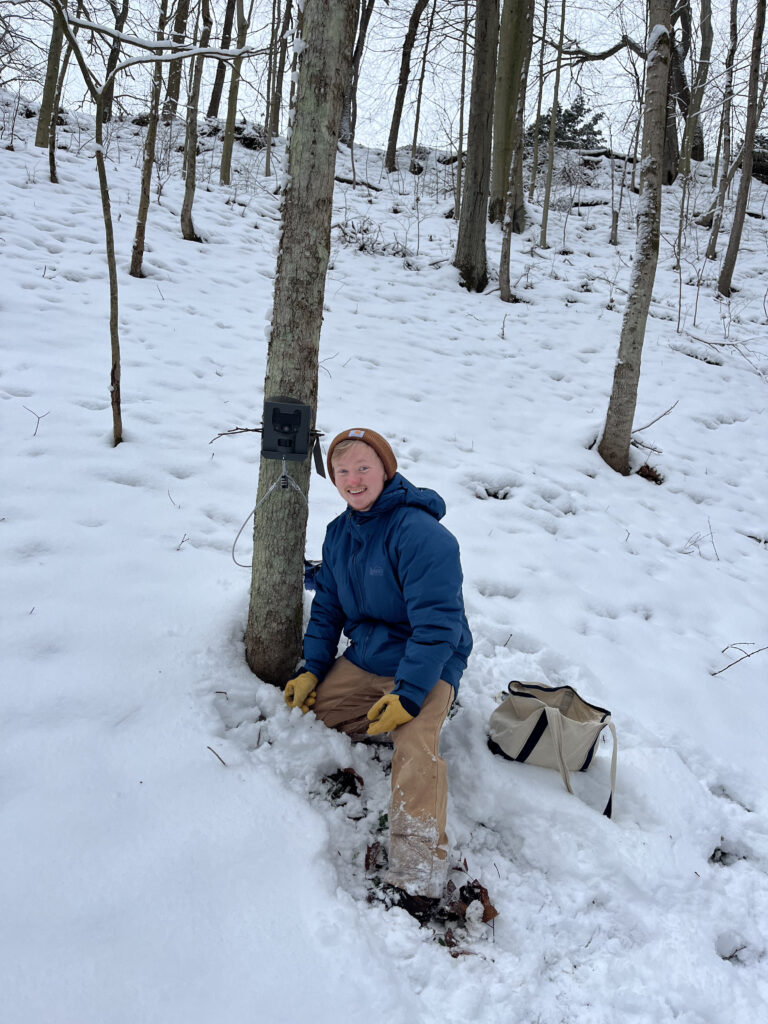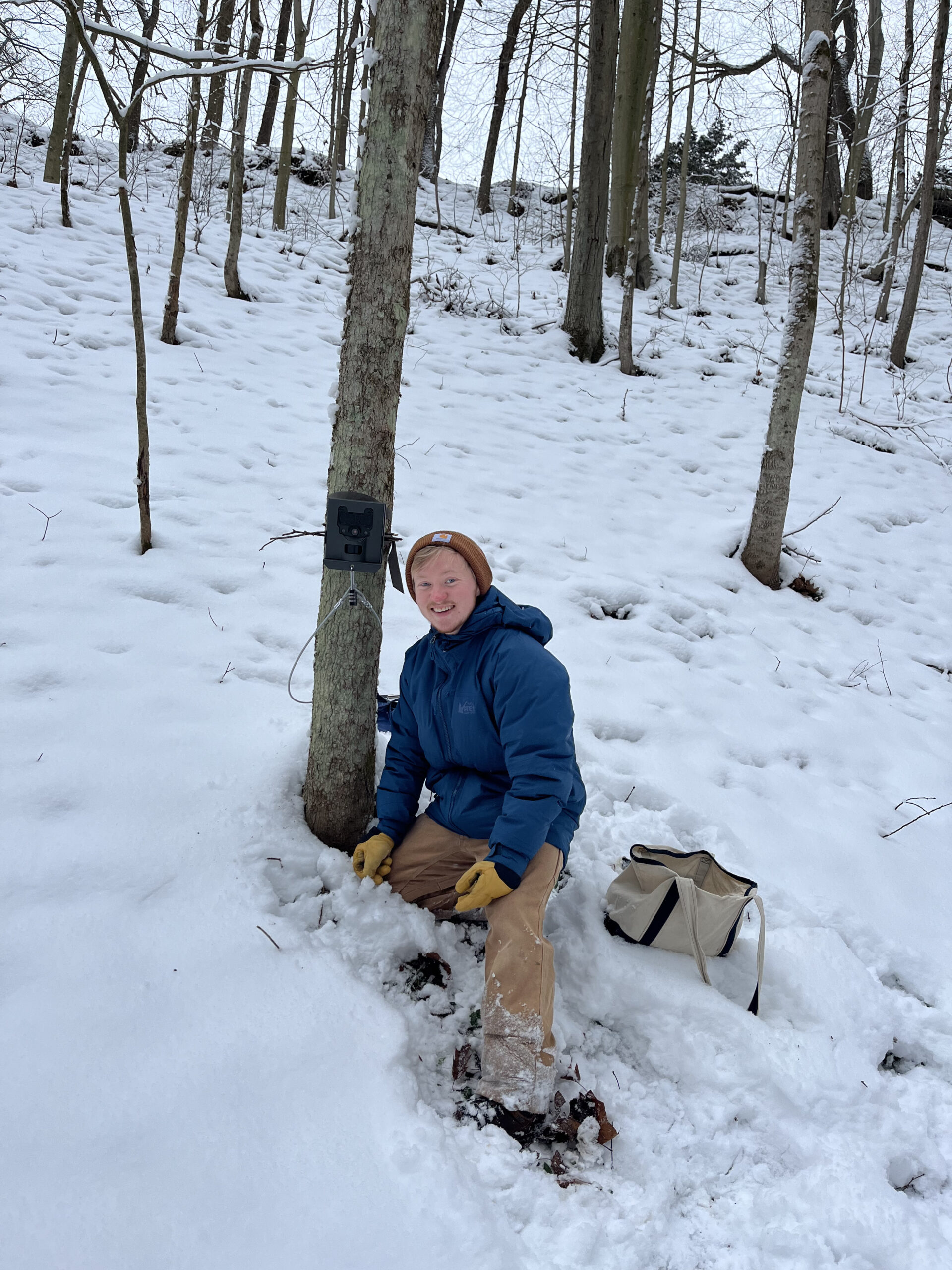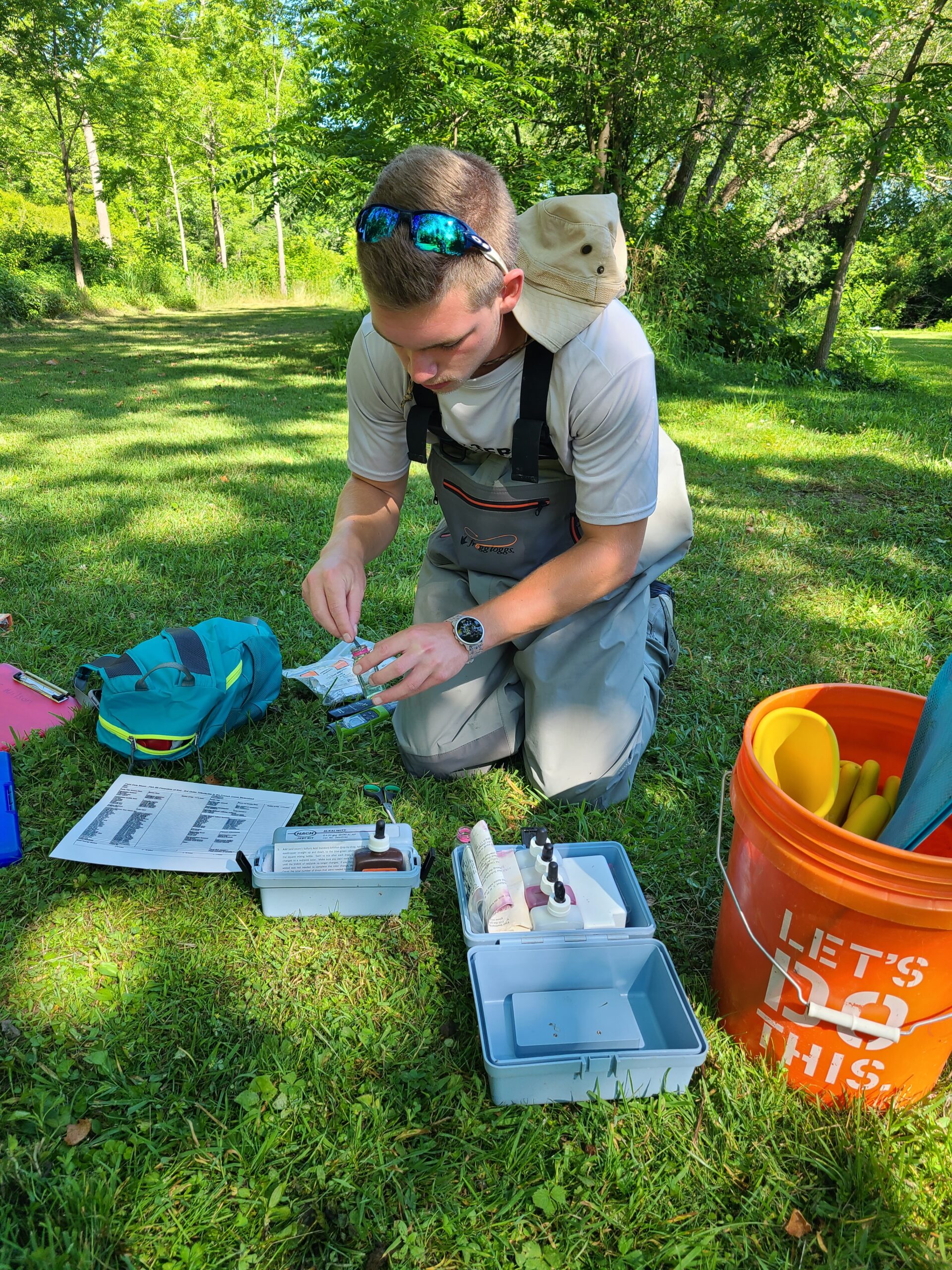
On May 9, 2022 the Watershed Conservation Research Center (WCRC) opened its doors with a mission to protect, restore and enrich the upper Allegheny River basin. Primarily focused on the French Creek Watershed, faculty, students, and community partners have spent the last year collaborating on invaluable educational outreach and hands-on research.
Assistant Professor of Environmental Science and Sustainability (ESS), Kelly Pearce, and Associate Professor of ESS, Casey Bradshaw-Wilson, serve as the center’s co-directors, and working from their location in Carr Hall 101 they oversaw 13 research and outreach projects with students in their first year of operation.

Milo Watson ’26
“Instead of traveling to a different campus or part of the country, we’re offering it all at Allegheny,” Bradshaw-Wilson said. “Students can stay in Meadville and get the same opportunities they would if they had to travel elsewhere.”
Bradshaw-Wilson believes the center further engages students by inviting them to volunteer and connecting them with community partners to gain supplemental experience.
“A lot of these projects are intricately connected to multiple community partners, which gives our students the experience of working not just with faculty at Allegheny but with conservation organizations that offer internships, job or research opportunities after students graduate,” Bradshaw-Wilson said.
The WCRC’s efforts have already been felt within the conservation community. The group’s work has received praise for how it has and will continue to affect the area’s conservation efforts.
“Their [WCRC] surveys of the waterways within our forests provide valuable insights into how our management approach impacts stream and ultimately watershed health across northwestern Pennsylvania,” said Executive Director of the Foundation for Sustainable Forests Annie Maloney.

Jake Folaron ’25
The center employs two staff members, Mark Kirk, a research scientist, and Briana Sebastian, an assistant research scientist. Geographic Information Systems Manager and Instructor of Environmental Science Chris Shaffer has also assisted the center with research.
“French Creek Valley Conservancy doesn’t have staff dedicated to French Creek research, so the WCRC’s work is critical in demonstrating the biological uniqueness of French Creek, identifying possible threats, and supporting our conservation efforts,” said Brenda Costa, executive director of French Creek Valley Conservancy.
Milo Watson ’26, a double major in ESS and English with an emphasis on creative writing, says his favorite part of working with the center has been actively analyzing data on species in local streams and cataloging data on mammals using camera traps.
“It’s been cool to identify local mammals and learn about the fish species in the area. I had no idea how to identify fish before I started working with the WCRC, but now I can and that’s really fun,” said Watson, who served as a lab and research assistant.
Jake Folaron ’25, an ESS major with a minor in psychology, noted how outstanding the mentoring has been through the WCRC during his two independent studies and summer research concerning local, aquatic species.
“Mark Kirk, Kelly Pearce, and Casey Bradshaw-Wilson are all fantastic mentors I have spent extended time within the field, and the other students I have worked with are people I have formed lasting relationships with,” Folaron said. “If you are interested in wildlife sciences or fisheries, being a part of the WCRC is probably one of the best opportunities during your time here.”


